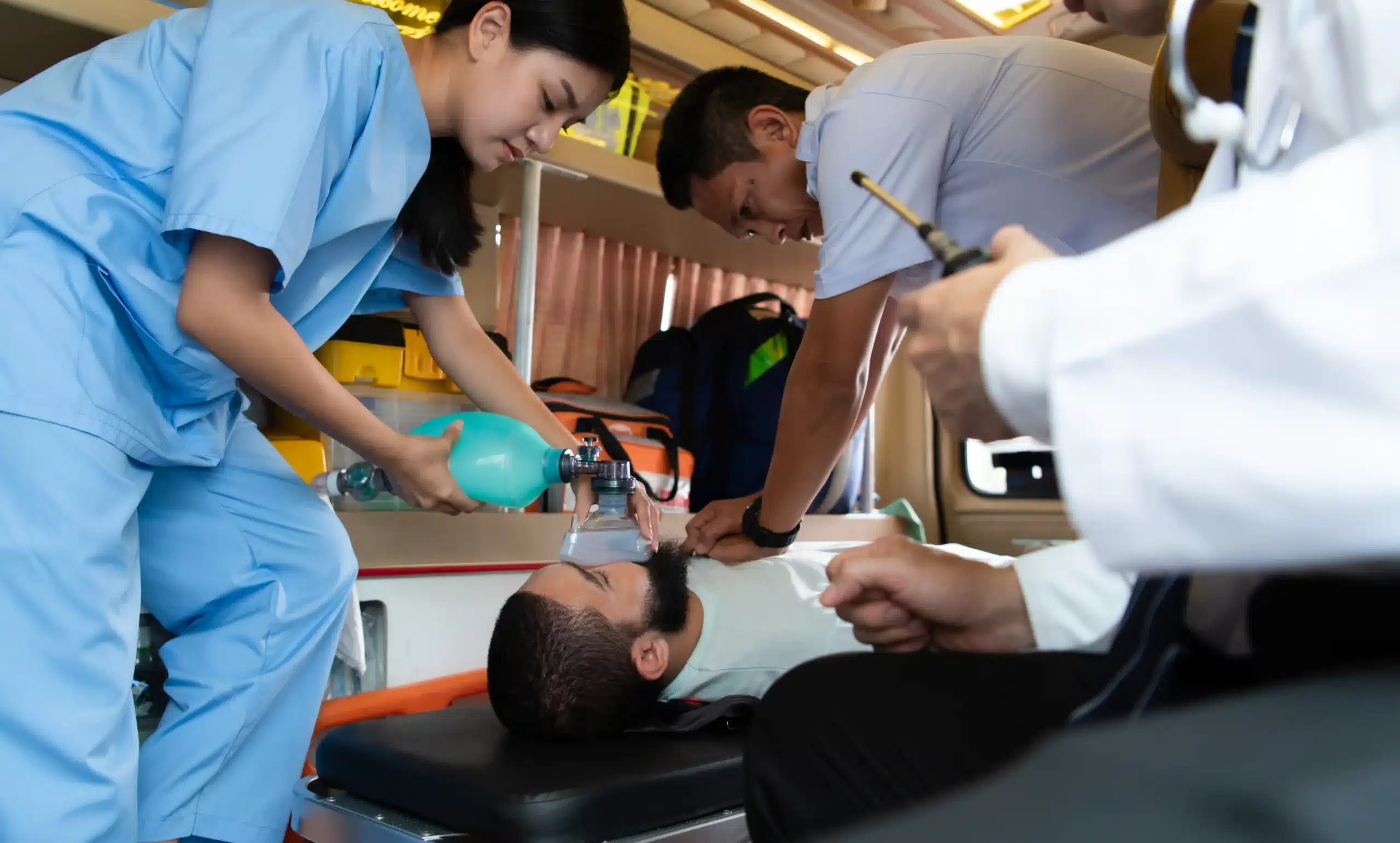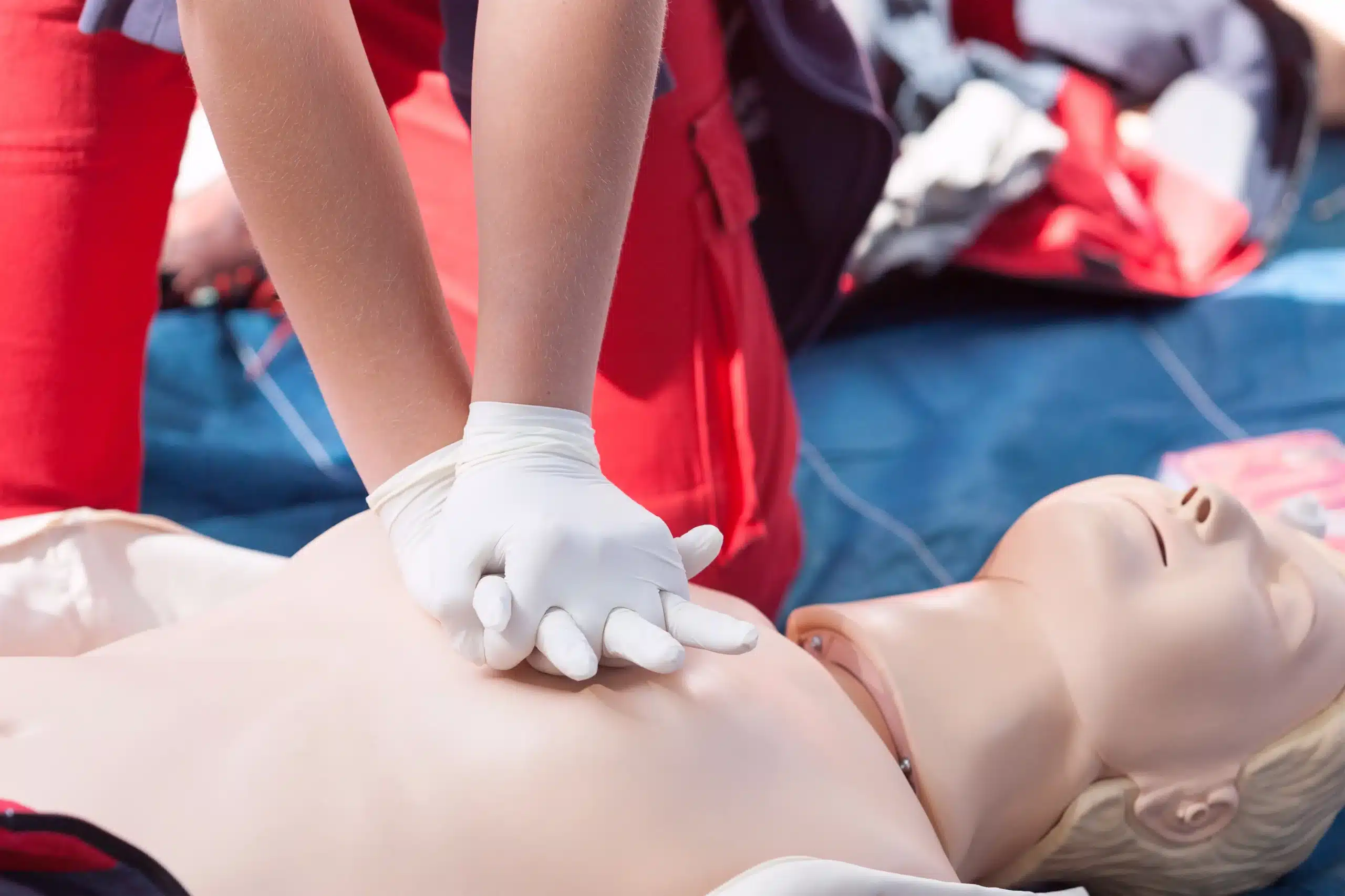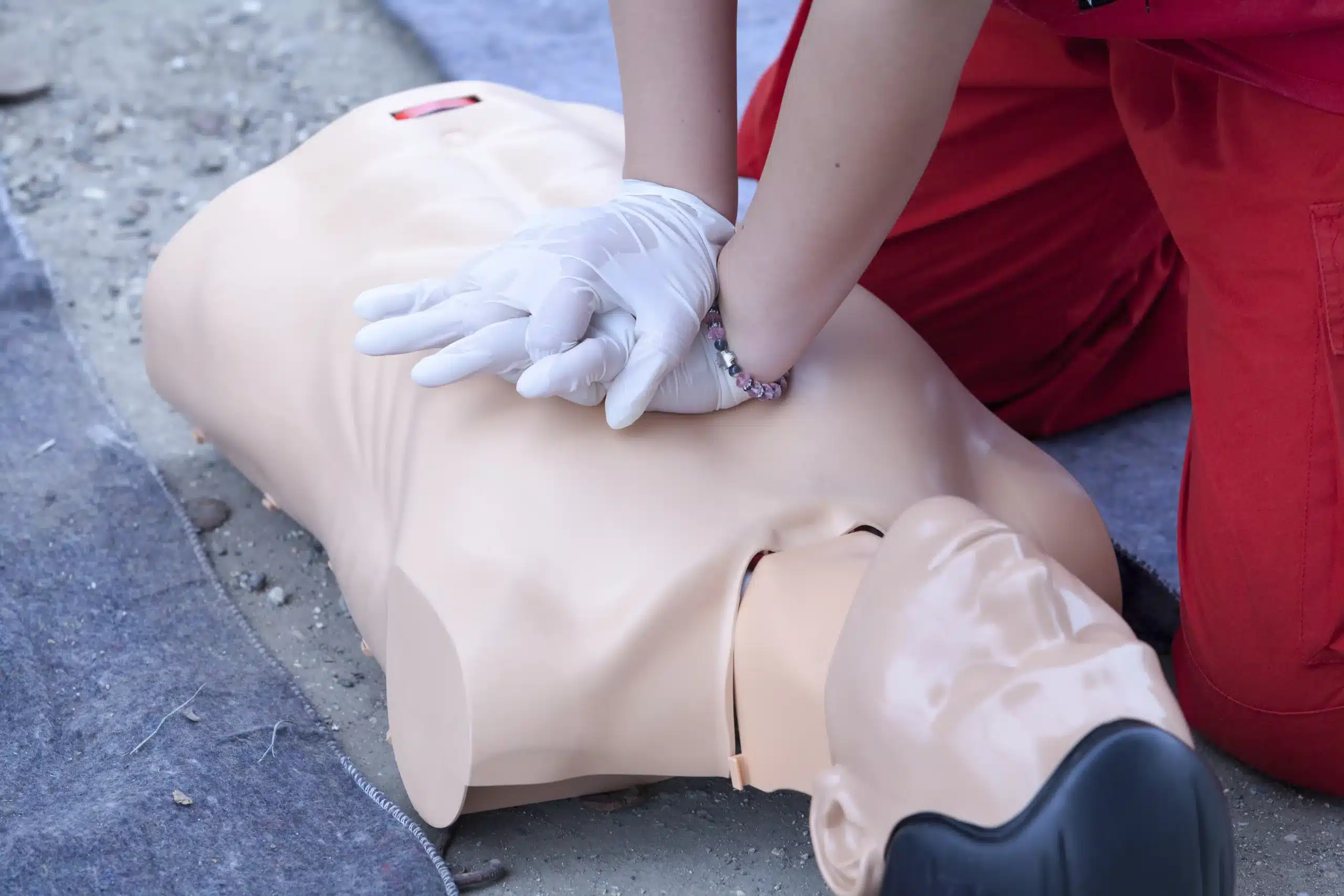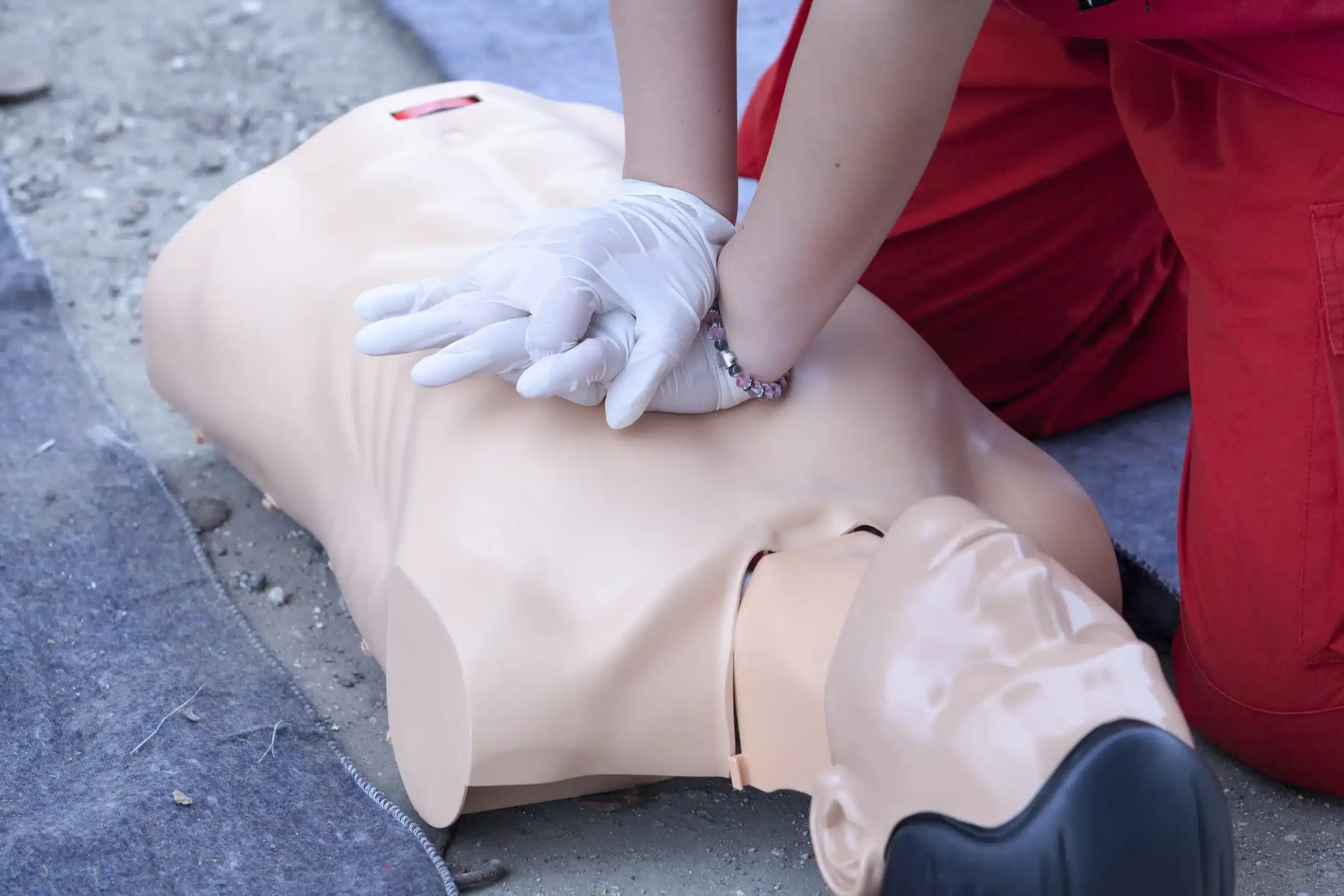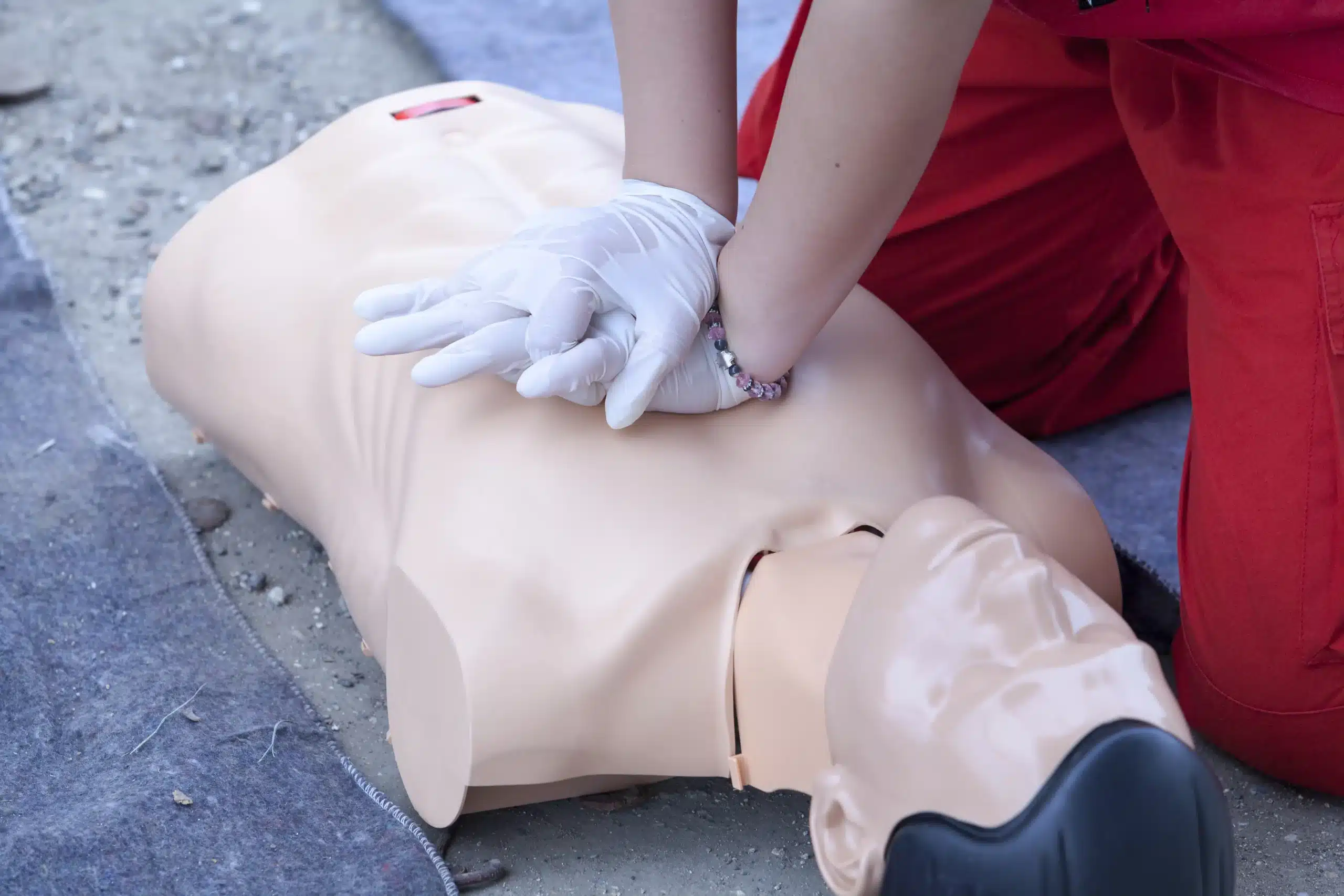Working in healthcare means facing high-pressure situations where advanced life support skills are essential. ACLS certification goes beyond basic life support, providing healthcare professionals with the advanced training needed to manage complex cardiovascular emergencies. This comprehensive guide breaks down everything you need to know about ACLS certification, from course content and prerequisites to finding acls courses in Citrus Heights and maintaining your credentials. We’ll explore the importance of AHA-certified instructors, hands-on training, and the role of effective teamwork in delivering optimal patient care during critical events.
Key Takeaways
- ACLS is a vital skillset for healthcare professionals: Mastering advanced cardiovascular life support techniques prepares you for managing complex cardiac emergencies, improving patient outcomes through effective teamwork and communication.
- Select your ACLS course strategically: Consider instructor experience, course structure, and cost when choosing a provider. Look for AHA-certified training that includes hands-on practice and covers key areas like pharmacology and airway management.
- Stay current with your ACLS certification: Renew your certification every two years and explore ongoing training opportunities like the RQI program to maintain your skills and knowledge of the latest guidelines.
What is ACLS?
ACLS stands for Advanced Cardiovascular Life Support. It’s a set of guidelines and protocols for healthcare professionals who manage life-threatening cardiac emergencies like cardiac arrest and stroke. ACLS emphasizes teamwork and clear communication, both crucial for positive patient outcomes during these critical events. If you’re a healthcare provider regularly involved in these types of emergencies, ACLS certification is essential. The training equips you with advanced skills to handle complex situations, from managing airways and administering medications to performing advanced resuscitation. Investing in ACLS training demonstrates a commitment to patient safety and high-quality care, showing you’re prepared for the most demanding situations in your field.
What Do ACLS Courses Cover?
ACLS certification focuses on advanced life support techniques for adult patients. This section breaks down the key components of a comprehensive ACLS course.
Core ACLS Skills and Knowledge
ACLS courses build upon foundational life-saving skills. You’ll review basic life support (BLS) principles and dive deeper into recognizing and managing life-threatening cardiac rhythms. Understanding the pathophysiology of cardiovascular emergencies is also crucial, giving you the knowledge to anticipate and address critical situations effectively. These courses often emphasize the systematic approach of early assessment and intervention, highlighting the importance of prompt action in improving patient outcomes. For more information on related courses, check out these BLS classes.
Hands-on Practice
Hands-on training is at the heart of ACLS certification. You’ll practice essential skills like airway management, intravenous (IV) access, and medication administration in a simulated environment. This practical experience builds confidence and competence, preparing you to perform under pressure during real-world emergencies. The American Heart Association’s RQI program offers a streamlined approach to maintaining these crucial skills.
Advanced Airway Management
Effective airway management is paramount in ACLS. You’ll learn advanced techniques for securing and maintaining a patient’s airway, including intubation and the use of supraglottic airway devices. These skills are critical for ensuring adequate oxygenation and ventilation during respiratory distress or cardiac arrest.
Pharmacology in Cardiac Emergencies
Understanding the appropriate use of medications in cardiac emergencies is a core component of ACLS. You’ll learn about the various drugs used to treat arrhythmias, manage blood pressure, and improve cardiac output. The course covers the indications, contraindications, and dosages of these medications, ensuring you can administer them safely and effectively. ACLS classes through the American Heart Association are considered the gold standard for medical professionals.
Manage Cardiac Arrest
ACLS courses provide comprehensive training in managing cardiac arrest. You’ll learn the systematic approach outlined in the ACLS algorithms, which guide healthcare professionals through the steps of resuscitation. This includes recognizing and treating various cardiac rhythms, administering medications, and providing post-resuscitation care.
Recognize Rhythms
Interpreting electrocardiograms (ECGs) is a fundamental skill in ACLS. You’ll learn to identify different cardiac rhythms, including those that indicate life-threatening arrhythmias. This ability to quickly and accurately recognize rhythms is essential for effective treatment and improved patient outcomes.
Team Dynamics and Communication
Effective teamwork and communication are vital during cardiac emergencies. ACLS courses emphasize the importance of clear communication, defined roles, and coordinated efforts within a resuscitation team. You’ll learn how to work effectively as a team member, contributing your skills and knowledge to provide the best possible patient care.
ACLS Courses in Citrus Heights
Finding the right Advanced Cardiovascular Life Support (ACLS) course in Citrus Heights is crucial for healthcare professionals who want to improve their life-saving skills. Several providers offer ACLS training in the area, each with its own approach. Let’s explore some of your options to help you find the best fit.
Folsom CPR Classes
Folsom CPR Classes provides ACLS training that follows American Heart Association (AHA) standards. They emphasize a comprehensive approach, covering essential algorithms and protocols for managing cardiovascular emergencies.
Safety Training Seminars
Safety Training Seminars offers AHA-compliant ACLS courses in Citrus Heights, with flexible scheduling options to accommodate busy healthcare providers. They are committed to providing high-quality training that equips professionals with the skills to handle critical situations confidently.
ACP EMS Training
ACP EMS Training, affiliated with Safety Training Seminars, also delivers ACLS certification courses in and around Citrus Heights. They emphasize convenient access to training throughout Northern California.
Bay Area CPR
Bay Area CPR, another partner of Safety Training Seminars, offers ACLS courses near Citrus Heights. They focus on providing accessible training for healthcare professionals seeking to maintain their certification or acquire new skills.
Low Price Guarantee CPR Classes
If you’re looking for affordable options, Low Price Guarantee CPR Classes in Citrus Heights offers competitive pricing and flexible scheduling. They aim to make ACLS certification accessible without compromising quality. Their low-price guarantee can be a great option for budget-conscious professionals.
Compare ACLS Course Prices and Features
Shopping around for the best ACLS course can feel overwhelming. It’s smart to compare options based on price, what’s included, and any special features offered. This way, you can find a course that fits your budget and learning style.
Price Range and Cost Factors
ACLS course fees in Citrus Heights vary depending on the training center and what the course includes. Factors like course materials, instructor experience, and the use of simulation technology can influence the overall cost. Citrus Heights CPR Classes is one provider that focuses on accessible courses and competitive pricing. Courses that incorporate advanced simulations might have a higher price tag but offer valuable hands-on learning experiences. Knowing what contributes to the cost will help you make informed decisions.
Discounts and Promotions
Before committing to a course, check for discounts. If you’re training with colleagues, consider asking providers like Bay Area CPR about group discounts. This can be a great way to lower the cost per person. Also, look for training centers that offer a low price guarantee, such as Citrus Heights CPR Classes, to ensure you’re getting the most affordable option in your area.
Unique Features from Local Providers
Look for training centers that offer features that match your learning style. If you’re a healthcare professional seeking an efficient certification or recertification process, the American Heart Association’s RQI program, offered by providers like Citrus Heights CPR Classes, might be a good fit. For those who value hands-on learning, consider providers like Folsom CPR Classes that use simulation technology in their ACLS courses. This immersive approach can provide a more realistic and effective learning experience.
Instructor Qualifications and Teaching Methods
When your life is on the line, you want the most qualified people providing CPR. Choosing the right ACLS course means looking closely at the instructors’ qualifications and teaching approaches. Here’s what sets excellent ACLS training apart:
American Heart Association Certification
First and foremost, confirm your instructors hold current American Heart Association (AHA) certifications. This ensures they’ve met the rigorous standards set by the AHA, the gold standard in resuscitation training. AHA-certified instructors stay up-to-date on the latest science and guidelines, giving you confidence in the quality of instruction. A good training center will clearly state its AHA affiliation. Don’t hesitate to ask for verification if you don’t see it.
Healthcare Professional Experience
Beyond certification, real-world experience matters. Instructors who actively work as healthcare providers bring practical insights and a deeper understanding of emergency situations. They can offer relevant examples and answer your questions from experience. Look for courses taught by experienced professionals like nurses, paramedics, or physicians. Their firsthand knowledge can significantly impact your learning.
Effective Teaching Techniques
ACLS training isn’t just about memorizing facts; it’s about developing the skills to perform under pressure. Effective teaching goes beyond lectures and incorporates various methods. Look for courses that include hands-on practice, simulations, and interactive discussions. Diverse teaching techniques cater to different learning styles and help you retain information better. A dynamic learning environment can make all the difference in your confidence and competence.
Prerequisites and Materials for ACLS Training
Before you jump into an Advanced Cardiovascular Life Support (ACLS) course, it’s important to understand the requirements and gather the necessary materials. Being prepared will make your learning experience smoother and more effective.
Required Certifications
A current American Heart Association (AHA) Basic Life Support for Healthcare Providers (BLS) certification is a must-have before starting ACLS training. This prerequisite ensures you have a solid foundation in basic life support techniques. Make sure your BLS certification isn’t expired—you’ll need it to participate in the ACLS course. Folsom CPR Classes offers BLS certification courses if you need to renew or obtain this prerequisite.
Essential Course Materials
You’ll need the current AHA ACLS Provider Manual for the course. This manual is your go-to resource for understanding the course content. You can often purchase the manual directly from your training provider, like Folsom CPR Classes, or from other sources. Having your own manual allows you to take notes and refer back to it even after the course is complete. Check with your provider to see if they offer the ACLS Provider Manual for purchase.
Online Pretest Requirements
Many ACLS courses require an online pretest before you attend the in-person training. This pretest helps gauge your existing knowledge and identify areas where you might need extra focus. Check with your chosen provider for their specific pretest requirements. You’ll typically receive a link to the pretest, and you’ll need to bring a printed copy of your completion certificate to class or email it in advance. Completing the pretest demonstrates your commitment to the course and ensures you’re ready to dive into the material. Contact Folsom CPR Classes for details about their pretest process.
Get ACLS Certified
Getting your ACLS certification is a significant step, so you’ll want a program that fits your schedule and learning style. Here’s what to know about the process:
Course Duration and Structure
ACLS courses typically involve online learning and in-person skills practice and testing. The RQI program from Folsom CPR Classes is a popular option, offering healthcare professionals a flexible and efficient path to certification. It blends online, self-paced learning with short, frequent skills sessions. Many providers, including Folsom CPR Classes, also offer traditional classroom courses for those who prefer a more structured environment.
Exam and Certification Validity
After the coursework and skills practice, you’ll take a written exam and a practical skills test. Passing both earns you an official American Heart Association ACLS certification card, valid for two years. This nationally recognized credential shows your proficiency in advanced cardiovascular life support.
Same-Day Certification Options
If you need your ACLS certification quickly, look for providers offering same-day certification. Many training centers, like Bay Area CPR, offer this option, so you receive your card immediately after completing the skills test. This is especially helpful for upcoming deadlines or job requirements. Confirm the process with your chosen provider.
Choose the Right ACLS Course Provider
Finding the right ACLS course provider is crucial for a successful learning experience. It’s about more than just getting certified; it’s about gaining the confidence and skills to handle real-life emergencies. Take your time and research different providers to find the best fit for your needs.
Factors to Consider
Think about what matters most to you in a learning environment. Do you prefer smaller classes for more personalized attention? Is a convenient location a top priority? Consider these factors when making your decision:
- Course Offerings and Flexibility: Look for a provider that offers a variety of courses and schedules. This flexibility allows you to choose a class that fits your availability and learning style. Citrus Heights CPR Classes offers a range of options to accommodate different needs.
- Certification and Accreditation: Ensure the provider offers American Heart Association (AHA) certified courses. AHA certification is widely recognized and ensures you receive high-quality training that meets industry standards.
- Instructor Qualifications: Experienced instructors can make a significant difference in your learning. Look for instructors who are not only certified but also have practical experience in the field. Safety Training Seminars emphasizes the expertise of their AHA-certified instructors.
Questions to Ask Potential Providers
Don’t hesitate to ask potential providers questions. Getting clear answers upfront can save you time and ensure you choose a course that meets your expectations. Here are some key questions to consider:
- What are the instructors’ qualifications? Inquire about the instructors’ experience, certifications, and teaching style. A provider’s commitment to qualified instructors reflects their dedication to quality training. For example, Citrus Heights CPR Classes highlights the credentials of their instructors.
- What is the pricing structure and are there any discounts available? Understand the total cost of the course, including any additional fees for materials or recertification. Low-cost CPR training options can make quality training more accessible.
- What is the course format and duration? Find out if the course is blended learning, online, or entirely in-person. Knowing the course format and length helps you plan your schedule accordingly. Safety Training Seminars offers various course formats and locations.
Prepare for Your ACLS Course
Getting ready for your ACLS course? A little prep work goes a long way. This section covers study tips, resources, and what you can expect on training day.
Study Tips and Resources
Don’t walk in cold! Prepping beforehand significantly improves your chances of success. Many providers, such as ACP EMS Training, require students to watch pre-course videos and bring a certificate of completion to class. Make sure you understand key rhythms like NSR, SB, ST, SVT, VF, VT, PEA, Asystole, and all types of Heart Blocks. Resources like All Care Health Services offer study materials and emphasize the importance of reviewing them before class.
What to Expect on Training Day
Knowing what to expect can ease any pre-class jitters. Bay Area CPR, for example, uses voice-activated mannequins (VAMs) for skills testing. While instructors aren’t present during the VAM test, support is available by phone. You’ll typically receive your certification card the same day you complete your skills test. Many training centers, including Bay Area CPR, offer daily classes and on-site group training, often with discounts. This can be a convenient option for workplaces or groups. Check out Folsom CPR Classes for more information on group discounts.
Maintain Your ACLS Certification
Keeping your ACLS skills sharp is crucial for providing the best patient care. This section covers how to renew your certification and find ongoing training opportunities.
Renewal Process
Your ACLS certification is valid for two years. Before it expires, you’ll need to retake the ACLS course to renew your credentials. A current BLS for Healthcare Providers card is a prerequisite, so make sure your BLS certification isn’t expired before your ACLS class.
Continuing Education Opportunities
Even if your certification isn’t due for renewal, regular training helps maintain your skills and keeps you informed on the latest guidelines. Folsom CPR Classes offers a variety of AHA courses, including BLS, ACLS, PALS, and First Aid. The RQI program is another convenient way to refresh your BLS, ACLS, and PALS skills and receive updated certification cards. Staying proactive with your training ensures you’re always prepared to provide effective care in emergencies.
Related Articles
- AHA ACLS Classes in Folsom, CA – Folsom CPR Classes
- CPR Training in Citrus Heights: Your Complete Guide – Folsom CPR Classes
- CPR and First Aid in Citrus Heights: Courses, Costs & Schedules – Folsom CPR Classes
- Find BLS Classes in Sacramento: Your Complete Guide – Folsom CPR Classes
- BLS for Healthcare Providers in Folsom: Your Guide – Folsom CPR Classes
Frequently Asked Questions
Why is ACLS certification important?
It’s the recognized standard for advanced life support, ensuring healthcare providers have the knowledge and skills to manage serious cardiovascular emergencies. Having this certification demonstrates a commitment to providing high-quality patient care in critical situations. It also often satisfies workplace requirements for many healthcare roles.
What’s the difference between BLS and ACLS?
BLS (Basic Life Support) focuses on immediate life-saving techniques for anyone, while ACLS (Advanced Cardiovascular Life Support) builds upon those basics with more advanced interventions specifically for healthcare professionals responding to complex cardiac emergencies. Think of BLS as the foundation and ACLS as the next level of expertise.
How can I find an ACLS course near me?
Start by searching online for “ACLS courses” along with your city or region. Look for established training centers like Folsom CPR Classes or those affiliated with the American Heart Association. Comparing course offerings, schedules, and prices from different providers can help you find the best fit.
What if my BLS certification expires before my ACLS renewal?
You’ll need a current BLS certification to take an ACLS course. If your BLS card expires before you’re due for ACLS renewal, you’ll need to recertify in BLS first. Many training centers offer both BLS and ACLS courses, making it convenient to update both certifications.
How can I stay up-to-date on ACLS guidelines after I’m certified?
Continuing education is key. Look for refresher courses, workshops, or online resources that cover updates to ACLS protocols. Staying informed about the latest advancements ensures you’re always prepared to provide the most effective care. The RQI program is a great option for maintaining your skills and staying current with guidelines.

